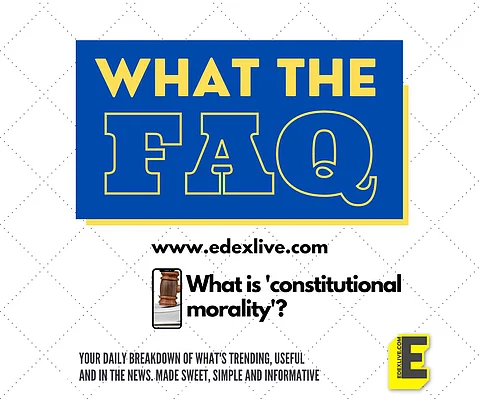

The hearing in the petitions challenging the hijab ban went on for the sixth day, as of February 18. In the Karnataka High Court, Advocate General Prabhuling Navadgi, while arguing on behalf of the state, said that the practice of wearing a hijab must pass the test of "constitutional morality" outlined in the Sabarimala verdict by the Supreme Court. The top court was of the opinion that constitutional morality is necessary for society than preserving traditions, customs and beliefs.
What is constitutional morality?
Abhinav Chandrachud, the advocate with the Bombay High Court, in an opinion piece, pointed out that the term first appeared in the 19th century. This term appears in the writings of George Grote, a British historian, and Chandrachud writes that, at the heart of it, the term means a “coexstience of freedom and self-imposed restraint”. The term was first spoken of in the Indian context by Dr BR Ambedkar during the Constituent Assembly debate in 1948. However, the meaning of the term was not elaborated on at the time. Although, it has been widely used since then has been part of some major cases.
How was it interpreted by our court?
In the State (NCT of Delhi) v. Union of India (2009), Chief Justice Dipak Misra wrote that “Constitutional morality means the morality that has inherent elements in the constitutional norms and the conscience of the Constitution.” Another judge in that same case wrote that constitutional morality was “an expectation of behaviour that will meet not just the text but the soul of the Constitution.” This is similar to the basic structure doctrine that holds that there is a basic structure to the Indian Constitution, and the parliament cannot amend the basic features.
How have high court judges used it?
In the same year, 2009, the Delhi High Court in Naz Foundation vs Government of NCT of Delhi invoked constitutional morality in asserting the urgency of decriminalising consensual sexual relations proscribed by Section 377. “Moral indignation, howsoever strong, is not a valid basis for overriding individual’s fundamental rights of dignity and privacy,” the court wrote. “In our scheme of things, constitutional morality must outweigh the argument of public morality, even if it be the majoritarian view.”
